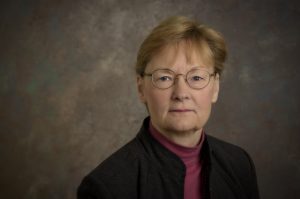
Greetings!
Thank you for your interest in the Museum Studies and Public Engagement Program at the University of Delaware. Our Program is among the country’s first and best-known training grounds for students interested in museums, archives, and other agencies and organizations focused on sharing expertise with the broader public. Its distinction and reputation come from two core approaches that have evolved with the times while remaining at the heart of the Program since its founding more than fifty years ago in 1972.
First, our Program is rooted in an ethic of service, both to communities and to the field. Our courses feature team-based projects with local communities or institutions, introducing students to the collaborative processes by which museums and other public repositories engage diverse audiences and build sustained dynamic relationships with them through cultivated curiosity and dialogue. Beyond coursework, most of our students join our “Collections AID” team every January to contribute quick but intensive collections assistance to small community organizations with limited staff. Since 2010, this voluntary project series has donated thousands of hours to improve collections care and documentation at more than 15 sites in and around Delaware. In addition, our Program maintains Sustaining Places, a free online encyclopedia of resources for museum management. Our students also help staff at local museum associations and conferences, where they gain extra insight and networking opportunities. All these experiences are supported by our substantial internship requirement. The hours and time our students invest in identifying, developing, and completing their internships, along with the service ethic infused into the entire program, means that many of our students volunteer with associations in the field and with a wide range of community organizations. Such a demonstrated commitment to service often results in career opportunities and benefits.
Our second core approach is to teach a wide range of technical skills. While many similar programs offer specialized tracks, ours was conceived as training for institutional leaders who need specific training across many types of work in the field. From collections management to community co-curation strategies, and digital skills to non-profit financial and fundraising literacy, our courses prioritize praxis over theory. Students develop applicable skills that help them better understand and function across departments at large institutions and in leadership roles at smaller ones. Please check out our course offerings.
I am excited to extend my more than three decades of public archaeology collaborative projects in Delaware in new directions with the larger museum studies and public humanities communities here, across the U.S., and beyond. I will work with our university, institutional, and community partners to honor the Program’s traditions and to develop new courses, curriculum standards, internship opportunities, and programs that will ensure our graduates remain prepared to serve and lead communities to achieve greater inclusion, understanding, and justice, and a more humane world.
Please feel free to contact me with any questions.
~Lu Ann
Lu Ann De Cunzo, Ph.D.
Professor of Anthropology
Interim Director, Museum Studies & Public Engagement Program



